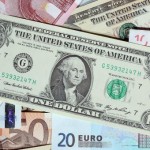US dollar advanced to highs unseen in six months against the Japanese yen on Monday, as demand for safe haven assets, such as the yen, decreased after an agreement has been reached to set limits on Iranian nuclear program.
USD/JPY climbed to a session high at 101.92 at 6:00 GMT, also the pairs highest point since May 29th, after which consolidation followed at 101.72, rising 0.44% for the day. Support was likely to be found at November 22nd low, 100.96, while resistance was to be met at May 29th high, 102.53.
An agreement has been struck, according to which Iran is expected to curtail its nuclear activities, while in return the country would be eased of “certain sanctions” on oil, auto parts, gold and precious metals. The deal was announced on Sunday, following five-day negotiations in Geneva.
The MSCI Asia Pacific Index of stocks advanced 0.6%, while Japanese Topix climbed 0.9%.
“There’s a risk-on sentiment in the market after the Iran deal,” said Toshiya Yamauchi, a senior analyst in Tokyo at Ueda Harlow Ltd., cited by Bloomberg News. “The yen is likely to weaken further, and if it breaks the July low of 101.53, the scope for declines will widen.”
Bank of Japan (BoJ) Governor Haruhiko Kuroda said earlier today that banks 2% inflation target was quite an ambitious goal, given the fact the country has experienced 15 years of deflation. Despite that Kuroda saw a significant progress towards this objective, while Japanese economy was recovering at a moderate pace. At the international financial forum in Tokyo Kuroda said that central banks target could be reached sometime late in the fiscal year through 2014 or early in 2015. He reiterated that banks monetary policy may be changed in case of necessity and underscored that monetary stimulus had had a positive influence upon Japanese economy and financial markets.
On November 21st, at its meeting on policy Bank of Japan (BoJ) decided to keep the benchmark interest rate unchanged at the current record low level of 0.10% in consonance with expectations, while also keeping its pledge to increase nation’s monetary base by 70 trillion JPY (695 billion USD) per year.
Meanwhile, the Senate Banking Committee last week voted 14-8 to approve Janet Yellen as the first Chairwoman of the Federal Reserve Bank. This vote came one day after the publication of the minutes of Federal Reserve Bank’s policy meeting in October. It revealed that central bank’s policymakers “generally expected” employment data, coming out of the United States to improve, as this would “warrant trimming the pace of purchases in coming months.”
Osamu Takashima, a Citigroup Inc. foreign-exchange strategist in Tokyo, wrote in an e-mailed note to clients today, that USD/JPY cross may rise above the level of 103.00 during the second quarter of 2014. On the other hand, according to the median estimate of experts participated in a survey by Bloomberg, the pair may climb even to 104.00 by Q2 next year.
Elsewhere, the yen was trading steadily against the euro, with EUR/JPY cross up 0.09% on a daily basis to trade at 137.44 at 10:56 GMT. GBP/JPY pair was advancing 0.20% to trade at 164.71 at 10:58 GMT. The Japanese yen has lost 13% this year, or the worst performance among the 10 developed-nation currencies, which are tracked by Bloomberg Correlation-Weighted Indexes. The US dollar has climbed 3.9%, while the euro has gained 7%.





